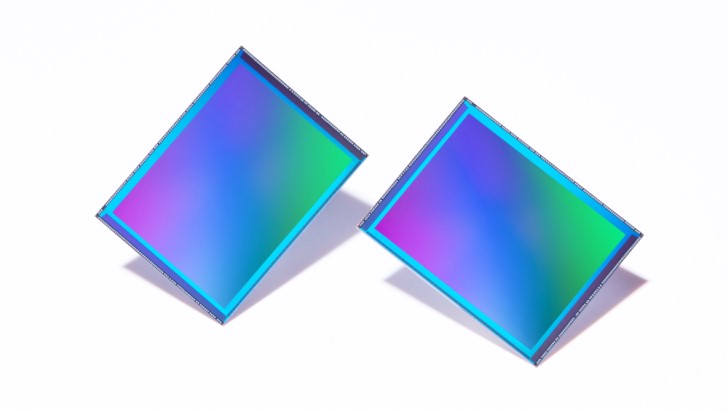The ISOCELL HP2 image sensor equips the Galaxy S23 Ultra’s pro-grade camera with advanced technology that enables even more detail, no matter your environment. The ISOCELL HP2 provides 200MP, 50MP, and 12MP output options that allow users to change resolution depending on their needs. In low-light conditions, the ISOCELL HP2 utilizes its Tetra2pixel technology to merge neighboring pixels into one, allowing it to operate as a single 2.4um-sized pixel with 12MP. This technology increases the light sensitivity of pixels and produces clearer low-light photos with less noise. The Galaxy S23 Ultra’s Nightography capabilities are improved with AI-enabled image signal processing technology that adjusts saved data on the image sensor to improve color tone and picture quality. The ISOCELL HP2 also features Super QPD technology for faster autofocus, and users can capture smooth and vibrant videos with 8K resolution. Samsung has been introducing innovative ISOCELL technology since 2013, and all functionality, features, specifications, and other product information provided in this document, including benefits, components, performance, availability, and capabilities, are subject to change without notice or obligation.
Samsung’s Galaxy S23 Ultra camera is equipped with the latest and most advanced technology to provide users with professional-grade photography capabilities. It features the ISOCELL HP2 image sensor, which is the biggest sensor ever on a Galaxy device and has 200 million pixels. This sensor allows users to capture stunning photos with epic details, even in challenging conditions.
The pixel count in a sensor determines the level of detail within an image. A 200MP image is 16 times bigger with 16 times more information than a 12.5MP image, which means that the Galaxy S23 Ultra maintains its level of detail even after cropping. Even if a 200MP image is cropped in half vertically and horizontally, the resulting 50MP image still maintains incredible rich details.
The ISOCELL HP2 utilizes an advanced deep learning algorithm to produce 200MP images with accurate colors and details, making it easy for users to zoom in on images or crop photos and still experience clear and crisp details with the Galaxy S23 Ultra.
Samsung has also enhanced the pixel structure of the ISOCELL HP2 to absorb more light than ever, even in some of the brightest conditions. The Dual Vertical Transfer Gate (D-VTG) pixel structure improves the appearance of colors and details in every pixel.
The Galaxy S23 Ultra camera’s fast autofocus and HDR capabilities, combined with the ISOCELL HP2 image sensor, enable users to capture phenomenal content and granular detail in a variety of situations. With the Galaxy S23 Ultra, users can shoot at the resolution they need, thanks to its standout technology and the ISOCELL HP2 image sensor.
With the ISOCELL HP2 sensor, the Galaxy S23 Ultra offers users versatile options for capturing high-quality photos. The sensor includes Tetra2pixel technology, which merges up to 16 individual pixels into one big pixel to produce 200MP, 50MP, and 12MP output options. This allows users to select the resolution that best suits their needs, whether it’s ultra-high quality or optimal storage space.
In low-light conditions, the ISOCELL HP2 utilizes its Tetra2pixel technology to merge neighboring pixels into one, allowing it to operate as a single 2.4um-sized pixel with 12MP. This technology increases the light sensitivity of pixels and produces clearer low-light photos with less noise. The Galaxy S23 Ultra’s Nightography capabilities are improved with AI-enabled image signal processing technology that adjusts saved data on the image sensor to improve color tone and picture quality.
The ISOCELL HP2 also features Super QPD technology for faster autofocus. With every pixel utilized for phase detection, 200 million pixels are used for focusing agents, compared to only 3% in its 108MP predecessor. Each micro-lens covers four adjacent autofocus pixels, which allows the sensor to detect movement both horizontally and vertically, making it easier to clearly capture high-movement scenes.
Users can capture smooth and vibrant videos with the Galaxy S23 Ultra, thanks to the ISOCELL HP2’s 50MP mode, which combines four pixels into one big pixel with Tetra2pixel technology to produce detailed 4K and 8K videos with bright, clear colors and a wider angle than its predecessor.
The ISOCELL HP2 sensor is epically equipped to provide users with a photography experience like no other. With its Tetra2pixel technology, Super QPD autofocus, and improved Nightography capabilities, the Galaxy S23 Ultra camera provides users with versatile options for capturing stunning photos and videos in any situation.
The Galaxy S23 Ultra’s pro-grade camera features the ISOCELL HP2 image sensor that provides advanced technology for capturing every moment with even more detail, regardless of the environment. With reduced shutter lag and Tetra2pixel technology, the ISOCELL HP2 enables users to capture movement in a photo and shoot 8K videos with a wide angle. The ISOCELL HP2 image sensor delivers unrivaled photos in every situation, from low light to bright sun.
Samsung has been introducing innovative ISOCELL technology since 2013, when it first reduced color crosstalk between pixels by placing a physical barrier. Samsung introduced the industry’s first 1.0μm-pixel image sensor in 2015 and a 0.9-pixel sensor in 2017. In 2018, Samsung introduced the upgraded pixel isolation technology, ISOCELL Plus. In 2020, Samsung introduced the 1.2μm-pixel image sensor, the first to offer both Dual Pixel and Tetrapixel technologies. In 2021, Samsung continued to innovate with diverse technologies and introduced the industry’s first 0.64-μm-pixel image sensor.
Please note that all functionality, features, specifications, and other product information provided in this document, including benefits, components, performance, availability, and capabilities, are subject to change without notice or obligation. All images shown are provided for illustrative purposes only and may not be an exact representation of the product or images captured with the product. Nonmetric weights and measurements are approximate, and all data were deemed correct at the time of creation. Samsung is not liable for errors or omissions.
Don’t miss interesting posts on Famousbio
